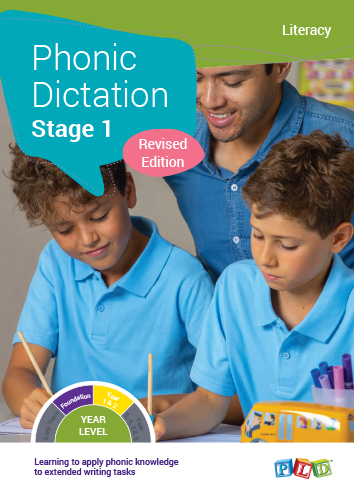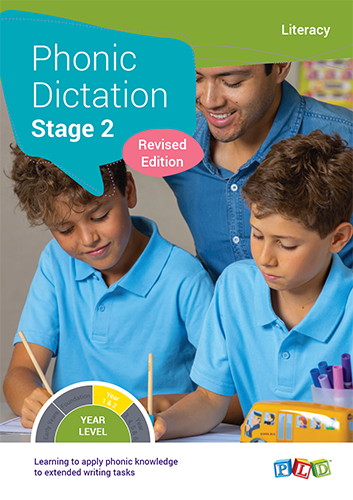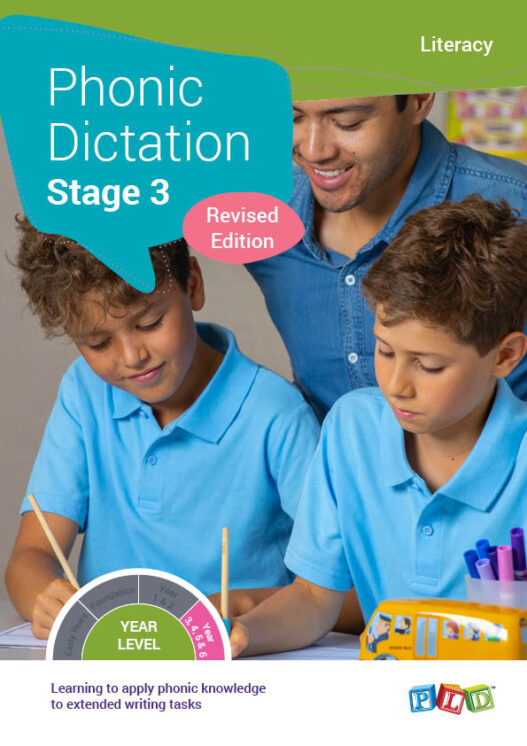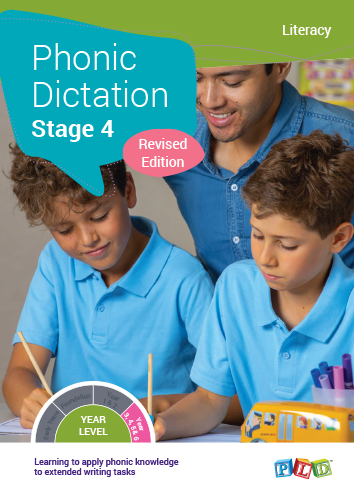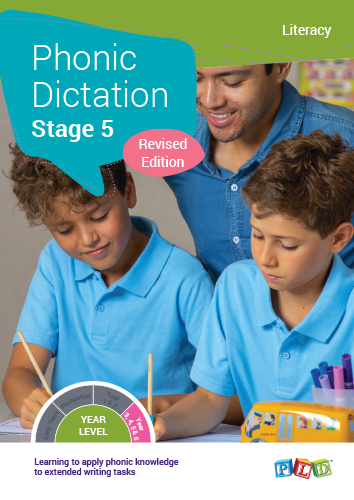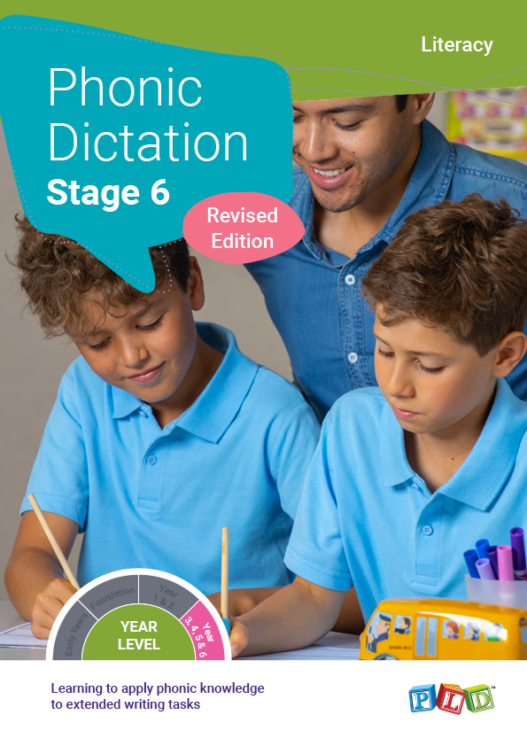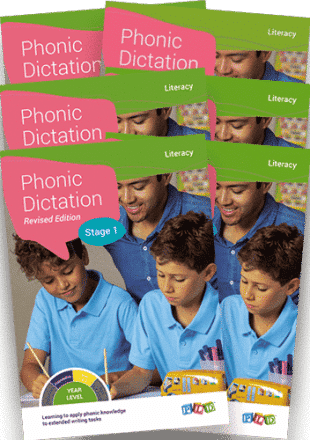PLD’s Phonic Dictation Programs
Phonic Dictation is an essential part of PLD’s Structured Synthetic Phonics (SSP) approach. Within the daily 30-minute SSP block, PLD recommends ending the weekly routine with one or two short teacher-directed phonic dictation sessions alongside repeated reading practise. Phonic Dictation also provides regular opportunities for students to apply phonic word lists from the Daily Review sequence, transferring single-word spelling into extended writing. This process consolidates phonic concepts, high-frequency words, and spelling skills in meaningful contexts.
Navigate to the relevant sections using the tabs below:
PLD’s Phonic Dictation Programs progress from First Writing Activities through Stage 6 dictation. These programs facilitate increasing complex phonic concepts into written tasks. The progarms are available as spiral-bound books or digital licences (individual or school). Schools can purchase single stages, the Junior & Middle Primary Set (Stages 1 – 4), or the Full Set (Stages 1 – 6) at bundle rates, with Catch-Up options for older students working below year level.
Each program aligns with the relevant Teaching Sequence Manual, ensuring dictation fits seamlessly within PLD’s teaching and learning cycle. Schools can use the Audit Form below to check existing resources or plan an upgrade, with bulk discounts and quotes also available.
Phonic Dictation is most effective when delivered in short, regular sessions. These tasks build fluency and help students transfer their spelling and reading skills into writing.
Tip! PLD provides video support for every year level from Foundation to Year 6. The lesson block demonstrations show how to run dictation alongside repeated reading, while refresher and essentials videos revisit the routines each term. Extra guidance is also available in PLD’s blog on ‘How to Present PLD’s Phonic Dictation with Fidelity”.
This short online course shows how regular dictation can be delivered across the primary years and why it makes a measurable difference to literacy outcomes.
The course outlines how to:
- Implement PLD’s Phonic Dictation range with confidence.
- Adapt tasks for diverse abilities, including students with delayed skills.
- Adapt tasks for diverse abilities, including students with delayed skills.

For more on the benefits of PLD’s Phonic Dictation Programs, our Literacy & Learning Blog offers practical, research-based articles written by our team of Speech Pathologists and Literacy experts. Here you will find insights on phonic dictation, repeated reading, and strategies that support strong literacy outcomes. PLD’s blog hub also covers a wide range of best-practice topics across oral language, phonics, spelling, and writing to help teachers maximise literacy progress in every classroom.
- What is dictation? Why is it important?
- How do I implement dictation with a group?
- 3 Groups/Levels of Phonic-Based List Words and 2 Levels of Dictation? How to Present Dictation with one adult in the room?
- What updates were introduced to the Phonic Dictation range in 2024?
- What updates were introduced to the Time-Savers range in 2024?




